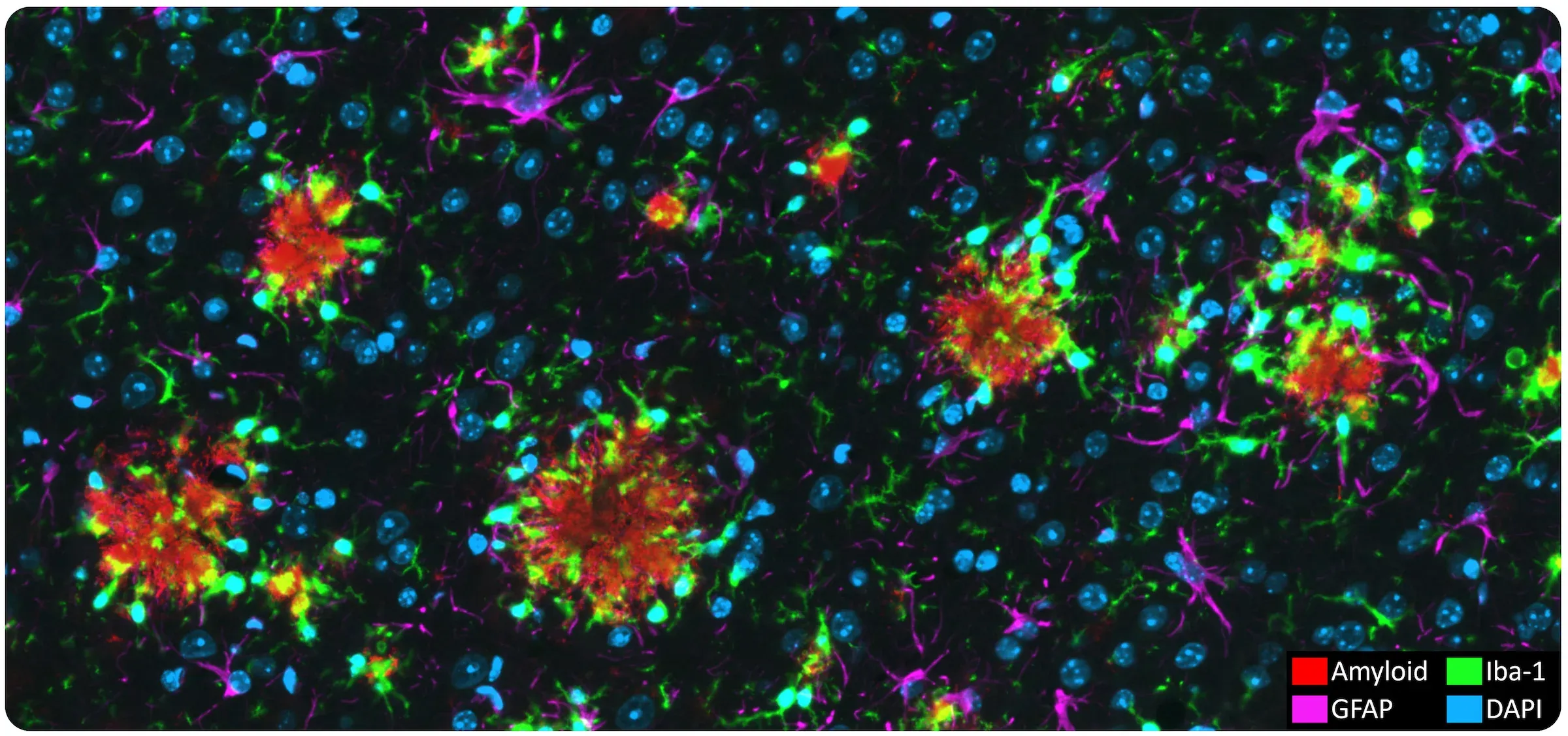Multiplex Immunofluorescence (IF)
Multiplex immunofluorescence (IF) represents a cutting-edge technique in preclinical research focused on neurodegenerative diseases, enabling simultaneous detection and visualization of multiple proteins within neural tissues with high precision. By leveraging a combination of fluorescently-labeled antibodies and/or reporter systems, multiplex immunofluorescence allows for the evaluation of numerous biomarkers and protein interactions concurrently, offering a comprehensive understanding of complex molecular changes characteristic of CNS diseases.
This advanced method facilitates the exploration of intricate protein networks, cellular pathways, and spatial relationships among various molecular targets, empowering a deeper comprehension of disease pathogenesis and the identification of potential therapeutic targets crucial for developing effective interventions and treatments for neurodegenerative diseases.

At Biospective, our lab is equipped with multiple IHC autostainers that are capable of efficient multiplex IF staining. Our team has developed multiplex IF protocols for our CNS disease rodent models. Our laboratory R&D team is continually developing new protocols, and we can work with you to define optimal staining for your study.
Learn more about our Multiplex Immunofluorescence (IF) Services.